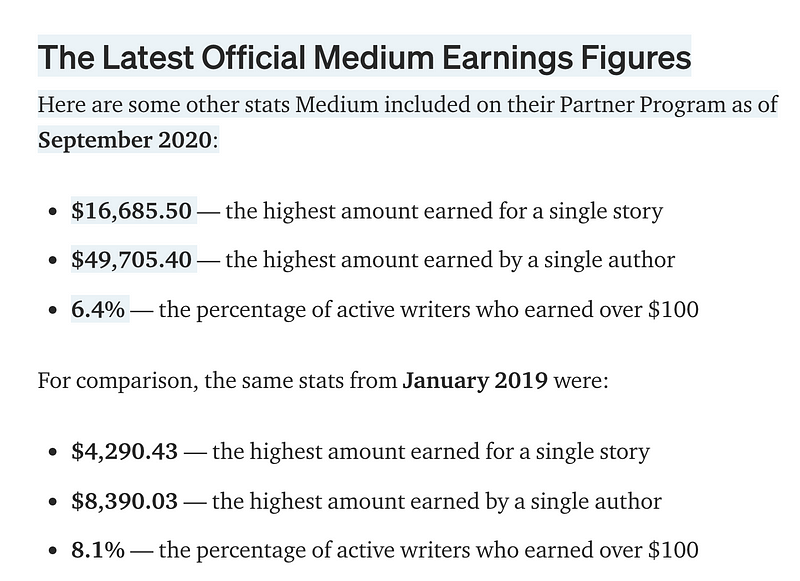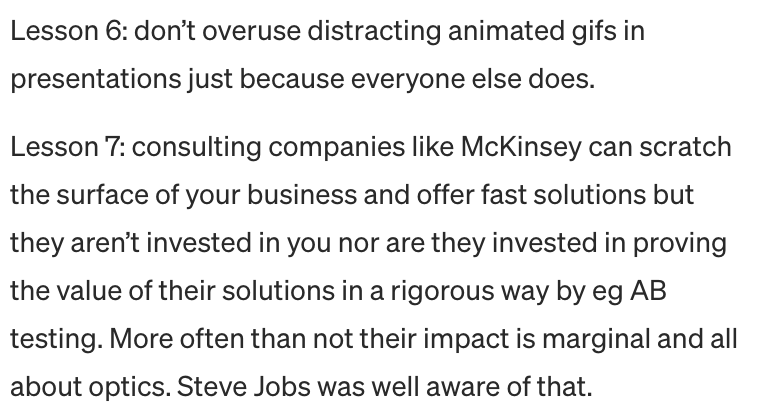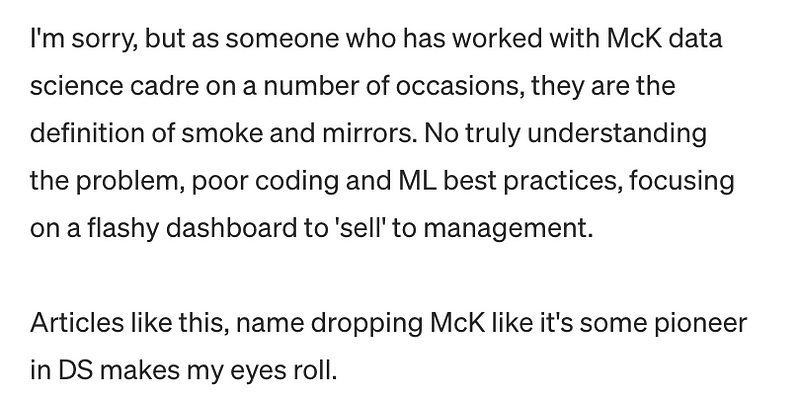Why I Won’t Participate in the ‘Great Resignation’ For My Side Hustle
and why you should reconsider, too, if you are thinking about it
and why you should reconsider, too, if you are thinking about it
I have been writing for Medium as a side hustle since early this year, and dare I say, I’ve been doing well on the platform. My most popular article “name dropping” (quoting one of the haters from the comment section) McKinsey got me over 60K views and I ranked in the top 1,000 writers on the platform for three consecutive months. I love writing for the platform and have accumulated friends/followers/readers on here.
With the recent ‘Great Resignation’ movement, a lot of people start to reconsider the once-never-questioned status quo of a corporate job and started entertaining the idea of a side hustle or even turning the side hustle into a full-time job.
Seeing tons of motivational articles about successful experiences swapping out a day job with Medium writing, I think it’s time for someone to offer the opposite and maybe unpopular opinion: Think twice before you decide to quit your day job to make it on Medium.
Despite all the success I mentioned above, in no way do I feel like I can turn this side-hustle into a full-time job, nor do I want to. Not going to lie, that idea crossed my mind for a brief second; but being a person with a “cursed” highly analytical mind, I started weighing the pros and cons of such a decision and quickly decided against it. In fact, I’m so convinced now that it doesn’t matter how many articles I read about “why you should quit your job to be a freelance writer”, I will NEVER quit my job for Medium, not in a million years, and here’s why.
If you think you can escape the corporate stress by being a writer for medium, think again
Being a full-time writer on Medium can maybe help you avoid the toxic culture of corporates, but it will not get rid of deadlines and stress that you may be experiencing in your day job right now. If anything, it might make it worse. Twitch streamers and YouTubers are the furthest from corporate workers but are famously suffering the most burnout.
Why? Because when you work for yourself, unlike in (most)office jobs, your income is highly correlated with the number of hours you put in. So every minute you are NOT working is a minute you wasted NOT making money. The stress is then coming from yourself instead of your manager, and you will have a harder time to disassociate yourself from that stress.
You want to be your own boss… well, not on Medium
A lot of us are considering quitting because we are fed up with working for and answering to others; we want to be our own bosses. Working for ourselves and not needing to please anyone but ourselves. But unfortunately, I don’t think Medium is the solution for that.
Sure, you won’t have anyone that’s “officially” your boss, but you still have to “answer to” editors of publications, especially if you are trying to get into one of the big ones. And just like trying your luck in a corporate, you might have the luck to get a very good “boss” who provides constructive feedback or you will get one of the below not helpful notes from editors who treat you as just “one of the writers” who are desperate to get into the publication:
At least in most (good) companies, there are straightforward guidelines for promotion and job performance reviews, so you know theoretically how to achieve certain goals in your professional and personal development. Editing, on the other hand, is so subjective, the reason for rejection could simply be “I didn’t like it” (of course, a good editor would offer more, but as I mentioned, you are not always so lucky). Trying to get your writing featured in a publication feels like you are in a never-ending cycle of job applications, with similarly opaque criteria and the difference between success and rejection seemingly driven more by luck than skill.
Being a highly analytical person, I ALWAYS prefer structure and clearness over vagueness and subjectivity; so I’d rather keep putting my main bet in the corporate world.
You can expect your coworkers to keep it professional, but you can’t expect the same of trolls on the internet.
Maybe I’m a fragile snowflake (aren’t all millennials), but I prefer constructive criticism over straight-out hateful comments. And trust me, you are bound to get some of the latter on the internet. It’s only a matter of when.
I love constructive criticism because it makes you better at what you do, in this case, a better writer. I got rid of useless Gifs because of the comment below, and I’m loving the new clean look of my pieces (and the time saved from looking for appropriate Gifs all the time).
What I don’t like is useless sarcasm and trolls, like the one below (funny how part of it is essentially the same opinion as the comment above, but a sprinkle of bitterness and rudeness can change the whole tone):
Or someone who can’t distinguish anecdotal evidence from trend hates on a whole group based on “a number of occasions”:
I don’t dwell on those and even laugh about them with my friends (and to be completely pragmatic, troll or not, a view is a view and Medium pays me for it), but they DO ruin the mood briefly at the moment.
Thanks to most companies’ boring but elaborate HR training, big corporates are probably the most PC places you can find on earth. Your co-workers might be rolling their eyes with cameras turned off during a meeting, but they will rarely say hurtful things to your face. But when commenting on things off-hour on the internet behind a keyboard, a lot of people don’t give a sh*t about keeping things kosher.
If you want to be free of the corporate, ask yourself if you have hard enough skin to deal with uncivilized haters.
Let’s be realistic, I will never make as much on my side hustle as my day job
I know you have read about people making 6-figures being a full-time writer on Medium all the time. But what people don’t tell you is that the payout structure of most social media platforms (Medium being one) resembles the earnings of artists, athletes, or movie stars — winner takes all (and it’s evidently getting more so seeing the stats below).
What’s also worth noting is that less than 10% of writers make over $100 in a month, so there’s more than a 90% chance that you DEFINITELY won’t earn the 6 figures, in fact far from it, even if you have a steady income every month at this level. And that is a big IF because your income WILL vary drastically.

Also depending on what you do for your day job, you can make that much or more in the corporate world, with the employer paying for (at least part of) your 401K and insurance, and paychecks that come with a set schedule and amount.
The feedback loop is not direct and your impact is not as visible
I appreciate my readers and I’m truly happy when some of them comment on my stories saying I helped them in any way. But that type of direct feedback doesn’t happen as often as the feedback and impact I feel at my day job — every time I see an AV from my company driving on an SF street, I KNOW I directly or indirectly contributed to that.
I’m hoping that as I get more and more followers, my articles can reach more people; but at the current stage, my outreach is definitely not at the same scale as a company's, and the impact is not always as tangible.
I didn’t get a quant degree from one of the top schools to be a writer, and I’m not ready to give up on math and coding.
I don’t want to brag, but I like what I do. I’ve always thought coding is cool (used to want to be a professional hacker when I was younger) but at the same time I want to influence business decisions — so data science is the perfect field in which I can do both.
I don’t know about you, but giving up the craftsmanship I spent years perfecting always leaves me with a sense of “fear of future regret”. I picked my field of occupation based on my interest and I’m not ready to give it up just because everyone else is quitting their day jobs.
No doubt I will keep on writing on Medium, as a hobby, and as a way to document my data science journey, learnings, and other things I reflect on. But rest assured I won’t be joining the “great resignation” movement for my side hustle, as it does NOT make any rational sense at this point.
Want to read more about data science and business? Here are some articles you might be interested in:
5 Lessons McKinsey Taught Me That Will Make You a Better Data Scientist
towardsdatascience.com
Avoid These Five Behaviors That Make You Look Like A Data Novice
And be a trustworthy, likable data partnermedium.com







